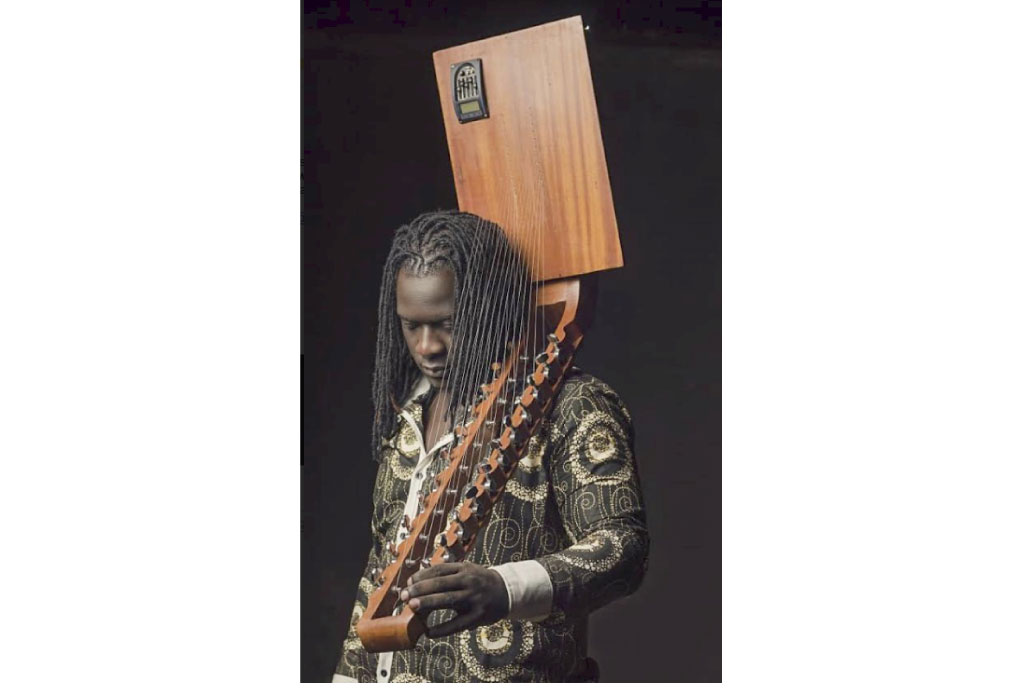TALKING ART: Janzi is a two-scale modern yet indigenous instrument that is made of 22 strings. Unlike most pentatonic African instruments, the janzi is tuned in two scales.
Even when East African countries like Uganda have a variety of indigenous instruments such as the Adungu, Akogo, Amadinda and Ndingidi, among others, description of authentic African music will most likely have an anecdote of a West African instrument such as Balafon, Kora, Ngoni, Shekere, Xalam and Djembe among others.
And sadly, none of the Ugandan artistes such as Herbert Kinobe or Joel Sebunjo present themselves alongside a local instrument at the world stage. In fact, Sebunjo for instance, is mostly known for the Kora than any local instrument he plays.
This becomes a problem when artistes majoring in local instruments visit Europe and have to explain what a Ugandan music instrument is.
“I remember walking into a music store in Germany and introducing myself as an artiste. They immediately asked what instrument I play and on mentioning the adungu, I noticed they had no idea what it was,” says James Ssewakiryanga, an artiste and one of the founders of Janzi Band.
That was the first time he noticed something was wrong: “I wondered why the balafon or kora were famous outside Africa and not the adungu or ndingidi.”
Years later while travelling to Denmark with a colleague, security at Customs stopped them from taking the adungu since they deemed it dangerous because of the nails that are used to fasten its strings.
“In many ways you could not blame them that it may have looked dangerous,” he says, wondering if the situation would have been the same had it been a kora.
On returning to Uganda, while trying to mend his broken adungu, he simply got a carpenter to make him a modern replica.
Much as Ssewakiryanga’s modifications on the adungu were appreciated, he chose to create a new instrument altogether because as a mere artiste, even in good faith, he has no authority over the adungu. “That is why I decided to create something different but inspired by the adungu.”
Janzi, as Ssewakiryanga calls it, is a two-scale modern yet indigenous instrument that is made of 22 strings. Unlike most pentatonic African instruments like the adungu, Kora, xylophone and enanga among others, the janzi is tuned in two scales.
A typical scale is a diatonic with seven notes (A, B, C, D, E, F, G), the pentatonic on the other hand uses only five of those notes —with a janzi tuning in two scales, it becomes the only known Ugandan instrument that is a diatonic.
“It means there is much more I can do musically that a person with a one scale instrument can’t,” Sewakiryanga says.
The janzi almost takes the shape of the adungu, though unlike the latter that has one neck with strings attached, this has two necks each, with 11 strings.
And besides the semblance with the adungu, the janzi is neither tuned like the adungu nor sounds like it. In 2015, the first janzi was designed and would later make appearances at Janzi Band’s performances.
However, it only enjoyed its prime in 2017 when it was highlighted in performances alongside Giovanni Kremer Kiyingi at the annual Fete De La Musique and bi-annual Roast and Rhyme festivities.
Ssewakiryanga shows us a certificate of grant of utility model, which in accordance with the industrial property act recognises the janzi as an invention of a musical instrument with two scales.
Besides having the instrument registered, he has gone on to embark on preserving it in a written form in a book titled Music of the Janzi.
editorial@ug.nationmedia.com





























































